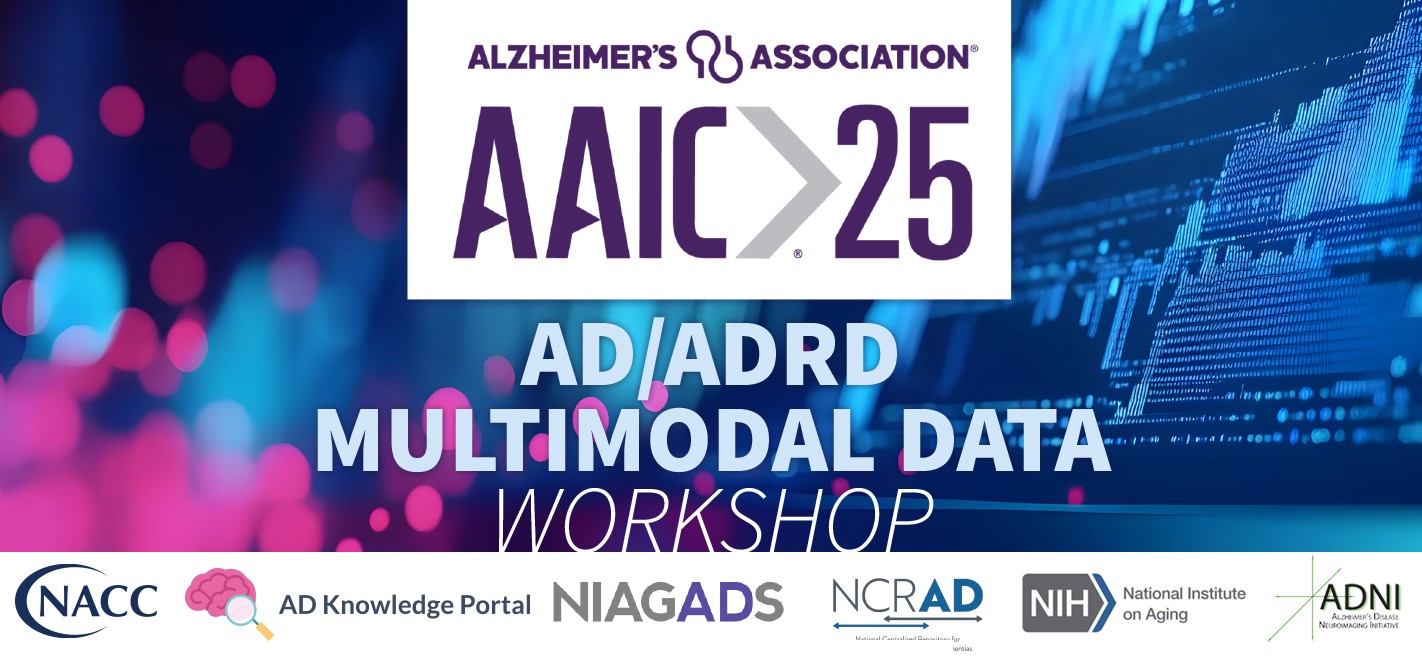
Date:
Time:
Location:
Join us for an interactive, in-person workshop designed to bring together researchers across the Alzheimer’s disease and related dementias (AD/ADRD) community to pitch ideas, spark new collaborations, and explore how to fully leverage the growing ecosystem of multimodal data resources to address the field’s most pressing scientific challenges.
We’re proud to feature experts from national repositories that play a foundational role in advancing AD/ADRD research:
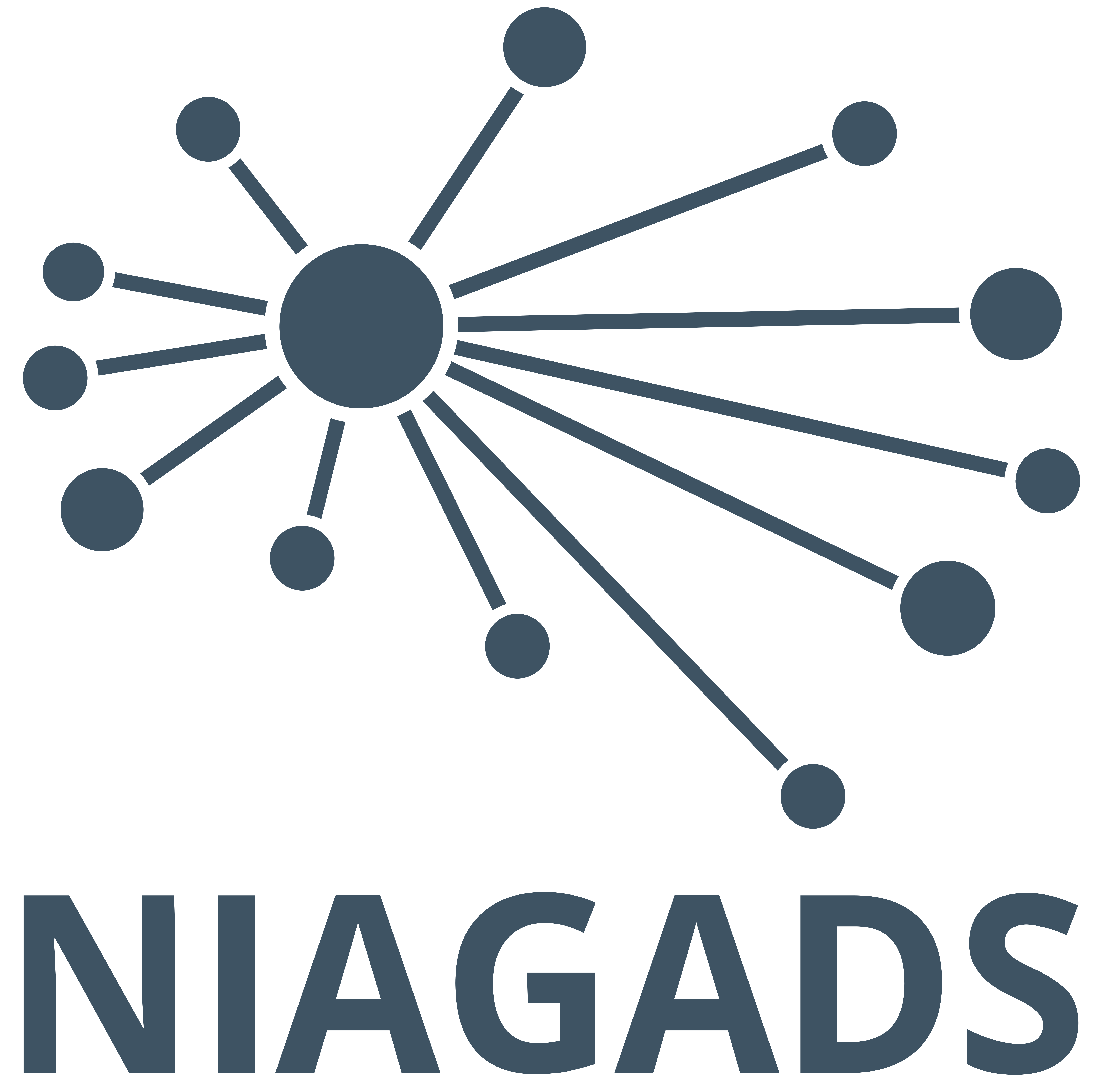
NIAGADS

NIAGADS
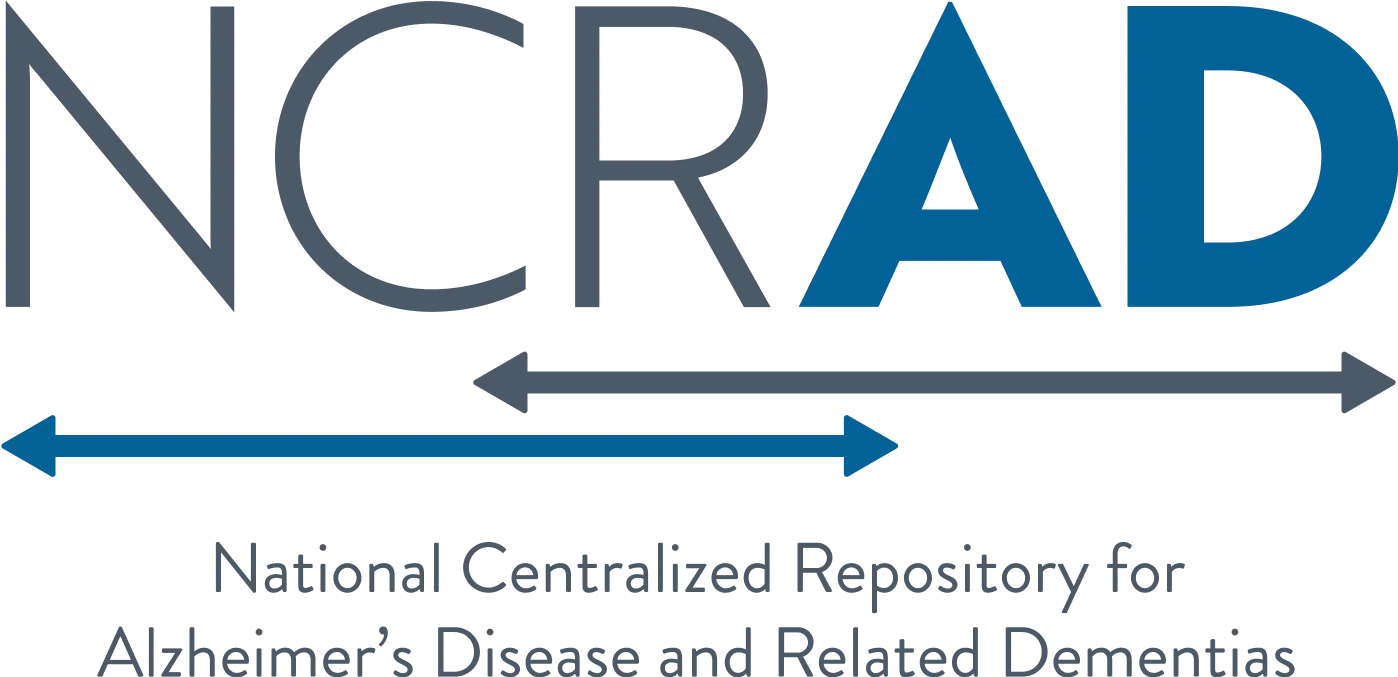
NCRAD

NCRAD
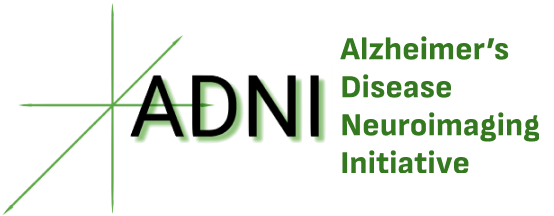
ADNI

ADNI
AD Knowledge Portal
AD Knowledge Portal

NIH CARD

NIH CARD
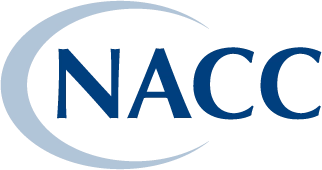
NACC

NACC
As AD/ADRD research becomes increasingly data-driven, the integration of clinical, genomic, imaging, biospecimen, multi-omics, digital, and real-world data offers unprecedented opportunities for discovery. However, combining and navigating these complex datasets across platforms remains a major challenge.
This workshop will dive into both the opportunities and obstacles of working with multimodal data—with a focus on actionable strategies and tools to empower researchers and accelerate progress in the field. A key resource will be NACC's new MQT tool. Be sure to watch the demo video and test the prototype.
What to Expect:
- Expert Panel: The workshop will kick off with a panel discussion featuring leaders from major data repositories across the AD/ADRD research landscape.
- Data Discovery Circuit: Participants will rotate through hands-on stations to explore repository platforms, interact with data experts and tools, and provide feedback on the data access experience.
- Pitch & Collaboratively Develop Research Ideas: Attendees will pitch research ideas or challenges that could benefit from multimodal data. In small teams, they’ll develop these ideas further—identifying needed datasets, refining study designs, and gathering input from repository and NIA representatives.
- Group Share-Backs Teams will share their proposed projects with the full group to spark discussion and cross-pollination of ideas.
- Closing Takeaways: The session will wrap up with a synthesis of key insights and concrete strategies for improving data discoverability and access—paving the way for more impactful and inclusive AD/ADRD research.
Agenda:
Presenters:
- *Sarah Biber, PhD – National Alzheimer’s Coordinating Center (NACC)
- *Laura M Health, PhD - Associate Director of Alzheimer’s Disease Translational Research at Sage Bionetworks / AD Knowledge Portal
- Li-San Wang, PhD – National Institute on Aging Genetics of Alzheimer’s Disease Data Storage Site (NIAGADS)
- Kristen Russ, PhD – Director, Biomarker Assay Laboratory, National Centralized Repository for Alzheimer’s Disease and Related Dementias (NCRAD)
- Duygu Tosun-Turgut, PhD – Alzheimer’s Disease Neuroimaging Initiative (ADNI)
- Mike Nalls, PhD – Advanced Analytics Expert Group Lead at the NIA Center for Alzheimer’s and Related Dementias (CARD); Founding Partner, Datatecnica

